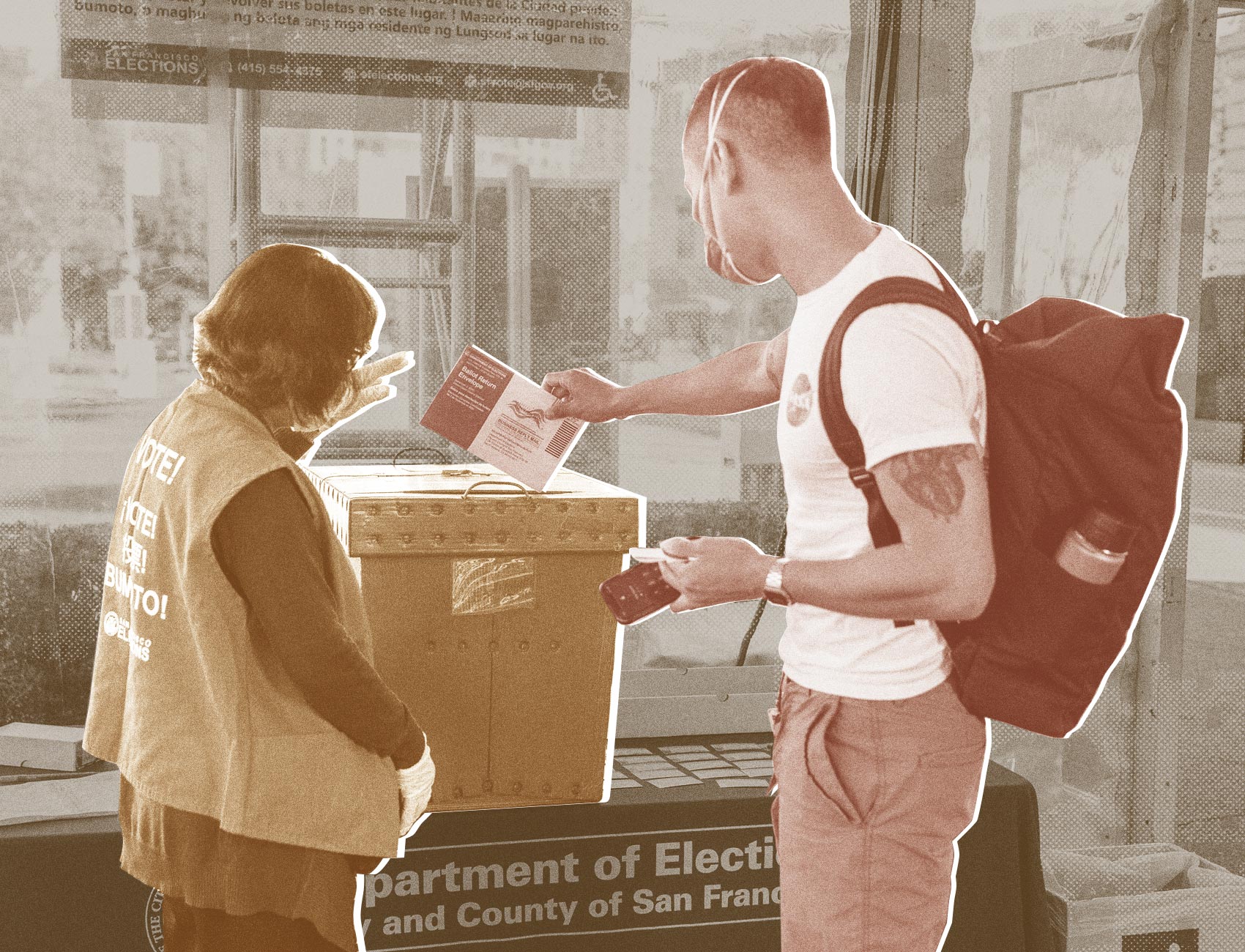Teens Younger Than 18 Could Soon Have The Right To Vote In San Francisco
A measure on the ballot next month would allow 16- and 17-year-olds to vote, a change that advocates say would crucially expand the voting pool.

San Francisco voters will decide next month whether to lower the voting age for local elections. If passed, the ballot measure, known as Proposition G, would allow 16- and 17-year-olds to cast their ballot, a change that advocates say would crucially expand the voting pool.
“This is a great way to strengthen our democracy and increase voter turnout in the long run,” Brandon Klugman, campaign manager for the organization Vote16 USA, told The Appeal. “Beyond that, it would give elected officials a concrete incentive to pay attention to the voices, needs, and concerns of 16- and 17-year-olds.”
Although cities in Maryland and countries such as Brazil, Austria, and Scotland have voting ages lower than 18, no major American cities have made the change. San Francisco would be the first.
Student activists have been rallying to change the age since 2016, when the measure narrowly missed passing with 48 percent of the vote. Briseis Portillo, 14, who is a spokesperson for the Proposition G campaign, told The Appeal that voting would give her and her peers a much-needed stake in their futures.
“People act like just because we’re under 18 and not adults yet that we don’t see the things that are going on in the world, but they really affect us,” she said. “I feel like this could help rebuild the system and get our input heard and bring it into the community, our schools, and our jobs.”
In four Washington, D.C., suburbs in Maryland—Takoma Park, Hyattsville, Greenbelt, and Riverdale Park—lowering the voting age has led to high turnouts of 16- and 17-year-olds. According to Vote16, 44 percent of registered 16- and 17-year-olds voted in 2013, the first year after the change took place. Since then, younger teenagers have voted at higher rates than 18- to 29-year-olds, the organization says.
Responding to critics who argue that young voters will mirror the votes of their parents, Klugman pointed to data from the 2014 Scottish independence referendum, which showed that more than 40 percent of 16- and 17-year-olds voted differently than their parents. He also noted that politicians in cities with lower voting ages, such as Takoma Park, engaged with young people in their campaigns more than they would have if they were not voters.
Along with the local level, there has been movement to change the voting age in federal elections. An amendment that Representative Ayanna Pressley introduced last year that would have made the voting age 16 received 126 votes. “Across this nation, young people are leading the way, which has been the case for every social movement throughout our history,” Pressley said in a House Rules Committee hearing on the amendment.
To lower the voting age in San Francisco, the ballot measure will need to earn the support of more than half the city’s eligible voters. Portillo is optimistic the proposition will pass. “To me it would mean having more youth involved in politics and having more youth involved in the decisions made,” she said.
